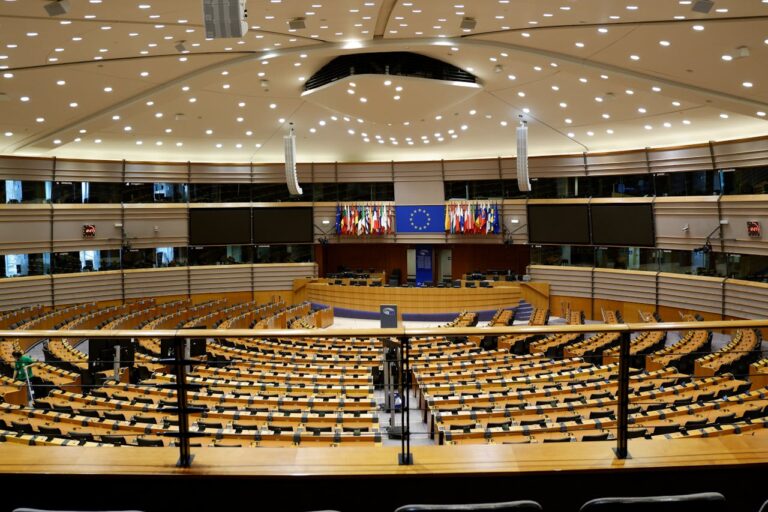
The Council of Europe (COE) adopted the first international and multilateral treaty on Artificial Intelligence (AI) on the 17th May 2024, known as the COE Framework Convention on Artificial Intelligence and human rights, democracy, and the rule of Law, CETS No. 225 (the Convention). The Convention aims to ensure respect for human rights, the rule of law, and democracy in the development and deployment of AI. The Convention aligns with the objective of the COE, which, among other things, seeks to achieve greater unity amongst member states, particularly in the areas of respect for human rights, democracy, and the rule of law. The Convention was adopted in Strasbourg during the yearly meeting of ministers of foreign affairs of the 46 Council of Europe member states. The Convention seeks to address specific challenges that arise throughout the lifecycle of AI systems while encouraging the consideration of the broader risks and impacts related to these technologies, including, but not limited to, human health, the environment, and socio-economic aspects, such as employment and labor.
The Convention defines an AI system as a machine-based system that, for explicit or implicit objectives, infers, from the input it receives, how to generate outputs such as predictions, content, recommendations, or decisions that may influence physical or virtual environments. Different AI systems vary in their levels of autonomy and adaptiveness after deployment. The Convention ensures that adequate procedural guarantees, safeguards, and rights are available to those impacted should an AI system significantly affect human rights.
The Convention also requires that persons interacting with AI systems are notified if they interact with AI systems rather than human beings. The Convention outlines measures to identify, assess, prevent, and mitigate risks posed by AI systems, particularly regarding human rights, democracy, and the rule of law. Tailored measures specific to the context and usage of AI systems have been implemented, considering risks to rights and democracy and the severity of impacts. These measures (which include monitoring, documentation, and testing where necessary), are crucial to address any adverse effects of AI systems on human rights, democracy, and the rule of law. It is essential to document these adverse impacts and the measures taken to address them and inform the relevant risk managers. The Convention recommends a moratorium, ban, and/or adoption of other appropriate measures for specific AI use. The Convention further provides that there must be no discrimination on any ground in implementing the provisions of the Convention, and the implementation of the requirements of the Convention must be in accordance with international human rights obligations. The Convention further states that none of its provisions shall be interpreted as limiting the possibility of adopting a more comprehensive measure of protection than stipulated in the convention.
The Convention also underscores the necessity of international collaboration in realizing its objectives. Member states are urged to support non-parties in comprehending and adhering to the provisions of the Convention and in acceding to it.
The Convention further provides that in scenarios where there is a conflict between the Convention and existing agreements, member states can continue to rely on those agreements so long as they align with the Convention’s objectives. European Union (EU) member parties should follow relevant EU rules that govern their relationship with one another while respecting the Convention’s overall objectives. This approach will also apply to other parties bound by similar laws.
The Convention stipulates that, in accordance with international obligations and domestic legal framework, appropriate measures must be implemented to ensure accessible and effective remedies for human rights violations arising from activities involving AI. Measures should be implemented to ensure that information about AI systems, which could significantly impact human rights and their use, are recorded, shared with authorized bodies, and, when relevant, made accessible to those affected. Moreover, it is essential to ensure that the information to be provided is sufficiently comprehensive to allow individuals to challenge AI-based decisions. Individuals should be able to contest AI-based decisions and file a formal complaint with the appropriate regulatory body.
The Convention is open for signature by member states of the Council of Europe, the participating non-member States that have contributed to its development, and the European Union. The Convention is to be ratified, accepted, or approved, and the instruments are to be deposited with the Secretary General of the Council of Europe. The signature will take effect on the first day of the month following the expiration of a period of three months after the date on which five signatories, including at least three member states of the Council of Europe, have expressed their consent to be bound by the Convention in accordance with Article 30(2). The Secretary General of the Council of Europe is tasked with informing all relevant parties, including member states, participating non-members, the EU, signatories, contracting states, and invited states, about any signatures of the convention, deposits of ratification, acceptance, approval, or accession, the date of the convention entry into force and any amendments and their effective dates, etc.
The seven principles outlined by the EU High-Level Expert Group (EU HLEG) including human agency, oversight, technical robustness, etc., correlate with certain aspects covered by the Convention, such as transparency and oversight (Article 8), accountability and responsibility (Article 9), equality and non-discrimination (Article 10), etc. thereby establishing some synergy between the Convention and the report of the EU HLEG.
In Conclusion, member states are in the process of gathering signatures. Notably, countries such as Andorra, Georgia, Iceland, Norway, the Republic of Moldova, San Marino, the United Kingdom, Israel, and the United States of America have signed the convention. The convention is open for member states to sign, and signing indicates a country’s intention to be so bound. Meanwhile, numerous African countries are implementing AI strategies to drive economic growth, foster development, and introduce innovations and job opportunities on the African continent. It will be interesting to see how the Convention fits into the AI strategies adopted across Africa. The Convention joins the list of instruments springing up around the world for the purpose of AI regulation, underscoring the criticality of this technology.
References
- Center for AI and Digital Policy,’ Council of Europe Adopts first international treaty on artificial intelligence’ (May 2024),
 accessed 4th September 2024.
accessed 4th September 2024. Council of Europe,’ Council of Europe Framework Convention on Artificial Intelligence and Human Rights, Democracy and the Rule of Law’ Council of Europe Treaty Series – No. [225] (2024),
 accessed 4th September 2024.
accessed 4th September 2024.Article 2 Council of Europe Framework Convention on Artificial Intelligence and Human Rights, Democracy and the Rule of Law.
Article 15 Council of Europe Framework Convention on Artificial Intelligence and Human Rights, Democracy and the Rule of Law.
Article 17 Council of Europe Framework Convention on Artificial Intelligence and Human Rights, Democracy and the Rule of Law.
Article 22 Council of Europe Framework Convention on Artificial Intelligence and Human Rights, Democracy and the Rule of Law.
Article 25 Council of Europe Framework Convention on Artificial Intelligence and Human Rights, Democracy and the Rule of Law.
Article 27 Council of Europe Framework Convention on Artificial Intelligence and Human Rights, Democracy and the Rule of Law.Article 14 Council of Europe Framework Convention on Artificial Intelligence and Human Rights, Democracy and the Rule of Law.Article 30 Council of Europe Framework Convention on Artificial Intelligence and Human Rights, Democracy and the Rule of Law.Article 36 Council of Europe Framework Convention on Artificial Intelligence and Human Rights, Democracy and the Rule of Law.The seven principles outlined by the EU HLEG human agency and oversight, technical robustness and safety, privacy and data governance, transparency, diversity, non-discrimination, fairness, societal and environmental well-being, and accountability. See European Commission,’ High-level Expert Group on Artificial Intelligence’,
Subscribe To Our Newsletter

